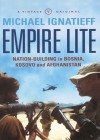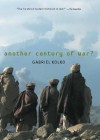Two Perspectives on a Trouble Future
Empire Lite: Nation-Building in Bosnia, Kosovo and Afghanistan
Written by: Michael Ignatieff,
Vintage Random House, London, 2003,
ISBN: 9780099455431, 134pp.
Another Century of War?
Written by: Gabriel Kolko,
The New Press, New York, 2002,
ISBN: 9781565847583, 165pp.
Reviewed by: Russell Parkin, Senior Research Fellow at the Land Warfare Studies Centre and co-editor of the AAJ
In his essay An Agenda for the 21st Century (1987), the leading Mexican writer Carlos Fuentes wrote that ‘High on the agenda for the 21st century will be the need to restore some kind of tragic consciousness’. After the horrendous wars and other man-made calamities of the 20th century, Fuentes believed that there was a serious requirement to regain a perspective on the tragedies of recent history in order that they might be understood on a human scale. The works reviewed below are attempts by two distinguished scholars to provide readers with differing perspectives on the use of military intervention as a means of curbing the violence and instability that have scarred the early years of the new millennium.
Michael Ignatieff is a Canadian scholar who is currently the Carr Professor of Human Rights Practice at Harvard University. Empire Lite is his observation of American military interventions in Kosovo and Afghanistan. Ignatieff believes that these interventions represent the emergence of a US global empire that is both imperial and humanitarian, hence the term ‘empire lite.’ This humanitarian empire is defined as ‘... the new face of an old figure: the democratic free world, the Christian West. It is held together by common elements of rhetoric and self-belief ... The idea if not the practice of democracy: the idea if not the practice of human rights; the idea if not the practice of equality before the law’.
Drawing on his personal experience as a journalist in several war zones, Ignatieff puts forward the case for unilateral US military intervention in failed states. He believes that the use of military power for this purpose is the only means by which nations such as Afghanistan can be saved from a continuous cycle of violence and instability. The chapters in the book represent an attempt to spur readers to think about the issues that he raises by putting them on a human scale, just as Fuentes insisted. The narrative permits understanding of both the depth and scale of the problems involved by showing the experience of individuals against the broad sweep of geopolitics. Ignatieff is able to demonstrate convincingly the relationship between the fragile peace created by American military power and the ability of humanitarian agencies to begin rebuilding shattered nations.
Scholars on the left have criticised Ignatieff for his staunch defence of American unilateralism. However, he would counter such assessments by saying, as he does in Empire Lite, ‘for every nationalist struggle that succeeds in giving its people self-determination and dignity, there are more that only deliver their people up to a self-immolating slaughter, terror, enforced partition and failure.’ There is also a hard edge of realism to this perspective. In Ignatieff’s own words, ‘the ostensible motive that sustains these nation-building projects [Kosovo, Afghanistan and Iraq] may be humanitarian, but the real principle is imperial: the maintenance of order over barbarian threat’.
Gabriel Kolko is the Distinguished Research Professor Emeritus at York University in Toronto. He has written ten books dealing with subjects ranging from World War II and international politics to the Vietnam War. His latest work, Another Century of War?, reprises both the title and some of the major themes of his celebrated 1994 work, A Century of War. The 1994 book dealt with the conflicts of the 20th century in the period after 1914. The final section of this work was entitled The United States, Politics and Warfare in a Complex World, 1946–1991: The Limits of Power. In Another Century of War?, Kolko begins with the terrorist attacks in the United States on 11 September 2001 in a chapter he called ‘The War Comes Home’. Kolko believes that most American foreign-policy initiatives amount to meddling in the affairs of other nations and that this interference has caused more problems in the world than it has solved. American meddling in the world is now even more dangerous than in the past because, as he notes in his preface to Another Century of War?, ‘The world has become far more complex, and much more unstable politically. The Cold War is over, but the dangers and reality of wars are ever present. There are, especially, more civil wars. Weapons of every sort are more destructive and also more widely distributed’.
The central hypothesis of Kolko’s book is that the complex problems of the world require political, economic and social remedies, not military solutions. He points out that US military interventions in the past have rarely brought peace. As a result of the current series of American military operations, Kolko says, ‘... we now live in an era of growing insecurity that will probably see more trauma like [11 September] ....’ He believes that the roots of terrorism lie in America’s cynical foreign policy, especially its handling of the crises in the Middle East and Afghanistan during the 1970s and 1980s. Kolko believes that the unilateral exercise of American military power will only further destabilise the international order. Unlike Ignatieff, he sees little difference between the wars of the present and the wars of the past. Indeed, the question mark in the title Another Century of War? signifies the author’s ambivalence towards the prospect of a peaceful future for the world.



